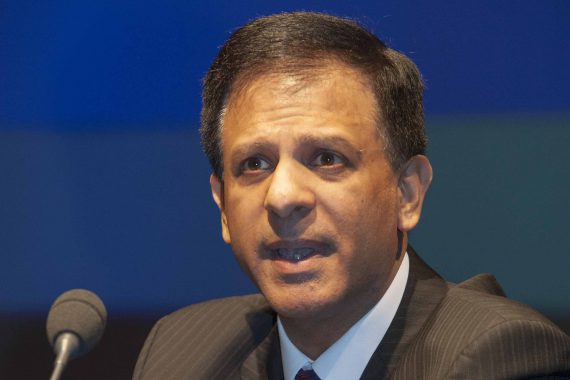All the reaction to the appointment of a new health secretary

Dr Chaand Nagpaul, BMA council chair and GP
‘We congratulate Mr Hancock on his appointment and look forward to working constructively with him on the development of health policies to ensure safe, high quality patient care.
’While there is a new secretary of state, the challenges the health service faces remain the same. Patients are facing longer waits for care, so-called ‘winter pressures’ in the NHS are now hitting the service all year round, and it lacks doctors, nurses, and beds.
‘This appointment comes at a crucial time for the health service and doctors want to see the new secretary of state put the NHS on a sustainable footing for the future, address the serious funding shortfall and ensure we can recruit and retain the right number of doctors, with the right support and infrastructure, to deliver high quality care for patients.’
Professor Helen Stokes-Lampard, RCGP chair
‘We look forward to building a constructive relationship with the new Secretary of State and will continue our push for the funding and GP recruitment commitments made by his predecessor to be delivered in full.
‘The extra £2.4bn per year promised in the GP Forward View and the state-backed indemnity scheme for GPs are ‘red lines’ as far as the College is concerned, and must be honoured along with other key commitments. We also need the new Health and Social Care Secretary to ensure that any long term plan for the NHS has high quality general practice at its core to ensure patients get the best possible care from the NHS.’
Dr Richard Vautrey, chair of the BMA’s GP committee
‘One of the first things Jeremy Hunt did was to impose damaging contract changes on general practice, but working with him we were able to reverse most of those changes in subsequent years.
‘Most recently he committed to a state-backed indemnity scheme for general practice to be implemented by next April, as well commissioning important reviews to reinvigorate the GP partnership model and a of premises.
‘It’s important that the new secretary of state backs these commitments, as well as placing general practice at the heart of the government’s long term plan, and backing it with the much needed resource increase general practice needs to respond to the growing needs of our patients.’
Dr Michelle Drage, Londonwide LMCs chief executive
‘I’d love the opportunity to show him the true face of London’s general practice.Particularly how our resilient and dedicated practice teams act as the front door for the capital’s healthcare, managing the challenges that come with caring for over nine million people across our 32 boroughs, providing both episodic and relationship continuity for our widely diverse and highly mobile population with increasingly complex health needs.
‘Technology is a massive aid to GPs and their teams, but at the core of general practice is the consultation, and continuity of care. I hope that Mr Hancock is open to supporting what works and together we can help practices benefit from what is new.’
Niall Dickson, NHS Confederation chief executive
‘The great survivor as health secretary has moved on. His legacy will be a better settlement for health than many had expected and a real focus on patient safety.
‘He inherited a tangled mess of a reorganisation from his predecessor and he had to live with a succession of austere funding settlements which were never going to meet rising demand.
‘Given so little to play with, Hunt deserves credit for helping to keep the show on the road, but the health service – better in many ways – has also slipped back when it comes to meeting many of its core standards.
‘His successor has one overwhelming challenge – how to help the NHS and the social care system to become sustainable in the face of rising demand and a severe workforce crisis.’
Saffron Cordery, deputy chief executive of NHS Providers
‘Matt Hancock arrives at a crucial time for the NHS with the need to develop a 10 year plan and prioritise how new funding is invested.
‘This will require difficult decisions in balancing the need to recover lost ground after almost a decade of austerity, transforming the way services are delivered – including the digital revolution – and improving care in key areas such as cancer and mental health.
‘He will also need to address important concerns that fall outside the NHS funding settlement, including social care, public health and workforce development. Without investment in these areas, progress will be curtailed.’
Pulse October survey
Take our July 2025 survey to potentially win £1.000 worth of tokens











